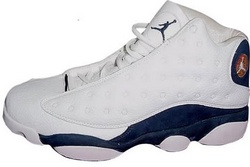Los Angeles, CA – Trademark attorneys for Louis Vuitton filed a trademark infringement, Lanham Act § 43(a) unfair competition (15 U.S.C. § 1125), counterfeiting, and copyright infringement complaint at the Federal District Court for the Central District of California (Los Angeles Division) to protect its purse designs from being copied. The luxury goods manufacturer began selling its luggage in France in 1854 and in the United States in 1893. In 1896, Louis Vuitton created the LV monogram with three motifs (shown below) and registered it with the U.S. Patent and Trademark Office in 1932. Louis Vuitton has additional design/logo trademarks that are also registered with the USPTO. Further, Louis Vuitton owns certain copyright registrations in the U.S. Copyright Office covering its Multicolor Monogram design.
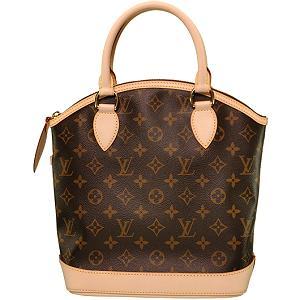 Defendants are alleged to have counterfeited and infringed on Louis Vuitton’s trademarks and copyrighted works by selling unauthorized goods, such as purses and handbags. Louis Vuitton alleges that “the activities of Defendants complained of herein constitute willful and intentional counterfeiting and infringement of the Louis Vuitton Trademarks and Copyrighted Work; are in total disregard of the Plaintiff’s rights and were commenced and have continued in spite of Defendants’ knowledge that the use of the Louis Vuitton Trademarks and Copyrighted Work, or copies or imitations thereof, was and is in direct contravention of Plaintiff’s rights.” The case is titled Louis Vuitton Malletier, S.A. v. Mido Trading, Inc., et al., CV 08-04405 DDP (C.D. Cal. 2008).
Defendants are alleged to have counterfeited and infringed on Louis Vuitton’s trademarks and copyrighted works by selling unauthorized goods, such as purses and handbags. Louis Vuitton alleges that “the activities of Defendants complained of herein constitute willful and intentional counterfeiting and infringement of the Louis Vuitton Trademarks and Copyrighted Work; are in total disregard of the Plaintiff’s rights and were commenced and have continued in spite of Defendants’ knowledge that the use of the Louis Vuitton Trademarks and Copyrighted Work, or copies or imitations thereof, was and is in direct contravention of Plaintiff’s rights.” The case is titled Louis Vuitton Malletier, S.A. v. Mido Trading, Inc., et al., CV 08-04405 DDP (C.D. Cal. 2008).
PRACTICE NOTE: The defendants’ website, midotrading.com, has been taken offline at the time of this post. That does not appear to be a good omen for defendants. I previously posted (Click Here) about the Louis Vuitton and “Chewie Vuiton” parody case, where the defendant’s parodical use of the LV Monogram was found to not infringe on Louis Vuitton’s trademarks or copyrights.
 Los Angeles Intellectual Property Trademark Attorney Blog
Los Angeles Intellectual Property Trademark Attorney Blog


 Defendant allegedly sells vehicle polishing and cleaning services that are described as “TEFLON® Polishing” and “TEFLON® Shine.” The complaint alleges that Defendant’s products do not contain genuine DuPont TEFLON® fluoropolymer. DuPont allegedly contacted the defendant and asked it to stop use of the mark, but defendant refused, thereby necessitating the lawsuit. The case is titled E.I. Du Pont De Nemours & Co. v. Tropic Shield, Inc., SACV08-00252 CJC (C.D. Cal. 2008).
Defendant allegedly sells vehicle polishing and cleaning services that are described as “TEFLON® Polishing” and “TEFLON® Shine.” The complaint alleges that Defendant’s products do not contain genuine DuPont TEFLON® fluoropolymer. DuPont allegedly contacted the defendant and asked it to stop use of the mark, but defendant refused, thereby necessitating the lawsuit. The case is titled E.I. Du Pont De Nemours & Co. v. Tropic Shield, Inc., SACV08-00252 CJC (C.D. Cal. 2008).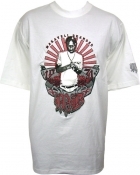 Defendants own and operate a retail store named Rock Town, and a private investigator – acting on behalf of Plaintiffs – allegedly “purchased an unauthorized t-shirt bearing an image of Tupac Shakur and the trademark ‘Makaveli.'” Plaintiffs sent a cease and desist letter to the Defendants, to which there has been no response. Plaintiffs filed the instant lawsuit seeking monetary damages and injunctive relief. The case is titled Amaru Entertainment, Inc. v. Reza Falatoon, CV08-03317 DSF (C.D. Cal. 2008).
Defendants own and operate a retail store named Rock Town, and a private investigator – acting on behalf of Plaintiffs – allegedly “purchased an unauthorized t-shirt bearing an image of Tupac Shakur and the trademark ‘Makaveli.'” Plaintiffs sent a cease and desist letter to the Defendants, to which there has been no response. Plaintiffs filed the instant lawsuit seeking monetary damages and injunctive relief. The case is titled Amaru Entertainment, Inc. v. Reza Falatoon, CV08-03317 DSF (C.D. Cal. 2008).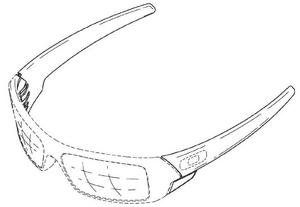
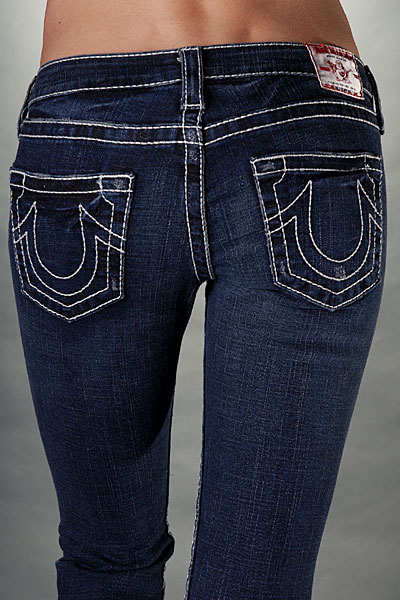 Guru Denim owns a
Guru Denim owns a 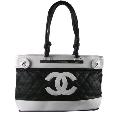 The complaint alleges that defendants are selling lower quality imitations of Chanel’s handbags and wallets, which bear counterfeit Chanel trademarks. The complaint asserts that the Defendants are offering the counterfeit goods on their websites: www.gqbags.com and www.ultimatehandbags.com. The websites offer handbags for sale that are substantially less expensive than authentic Chanel products. “The net effect of the Defendants’ actions will be to result in the confusion of consumers who will believe the Defendants’ Counterfeit Goods are genuine goods originating from and approved by Chanel.” Chanel believes that the defendants are engaging in the sale of counterfeit goods intentionally and willfully. The complaint alleges causes of action for trademark infringement and counterfeiting under section 32 of the Lanham Act, 15 U.S.C. § 114, and false designation of origin and unfair competition under section 43(a) of the Lanham Act, 15 U.S.C. § 1125(a). The case is titled: Chanel, Inc. v. Kimberli Hunter, et al., CV08-02226 GHK (C.D. Cal. 2008).
The complaint alleges that defendants are selling lower quality imitations of Chanel’s handbags and wallets, which bear counterfeit Chanel trademarks. The complaint asserts that the Defendants are offering the counterfeit goods on their websites: www.gqbags.com and www.ultimatehandbags.com. The websites offer handbags for sale that are substantially less expensive than authentic Chanel products. “The net effect of the Defendants’ actions will be to result in the confusion of consumers who will believe the Defendants’ Counterfeit Goods are genuine goods originating from and approved by Chanel.” Chanel believes that the defendants are engaging in the sale of counterfeit goods intentionally and willfully. The complaint alleges causes of action for trademark infringement and counterfeiting under section 32 of the Lanham Act, 15 U.S.C. § 114, and false designation of origin and unfair competition under section 43(a) of the Lanham Act, 15 U.S.C. § 1125(a). The case is titled: Chanel, Inc. v. Kimberli Hunter, et al., CV08-02226 GHK (C.D. Cal. 2008).